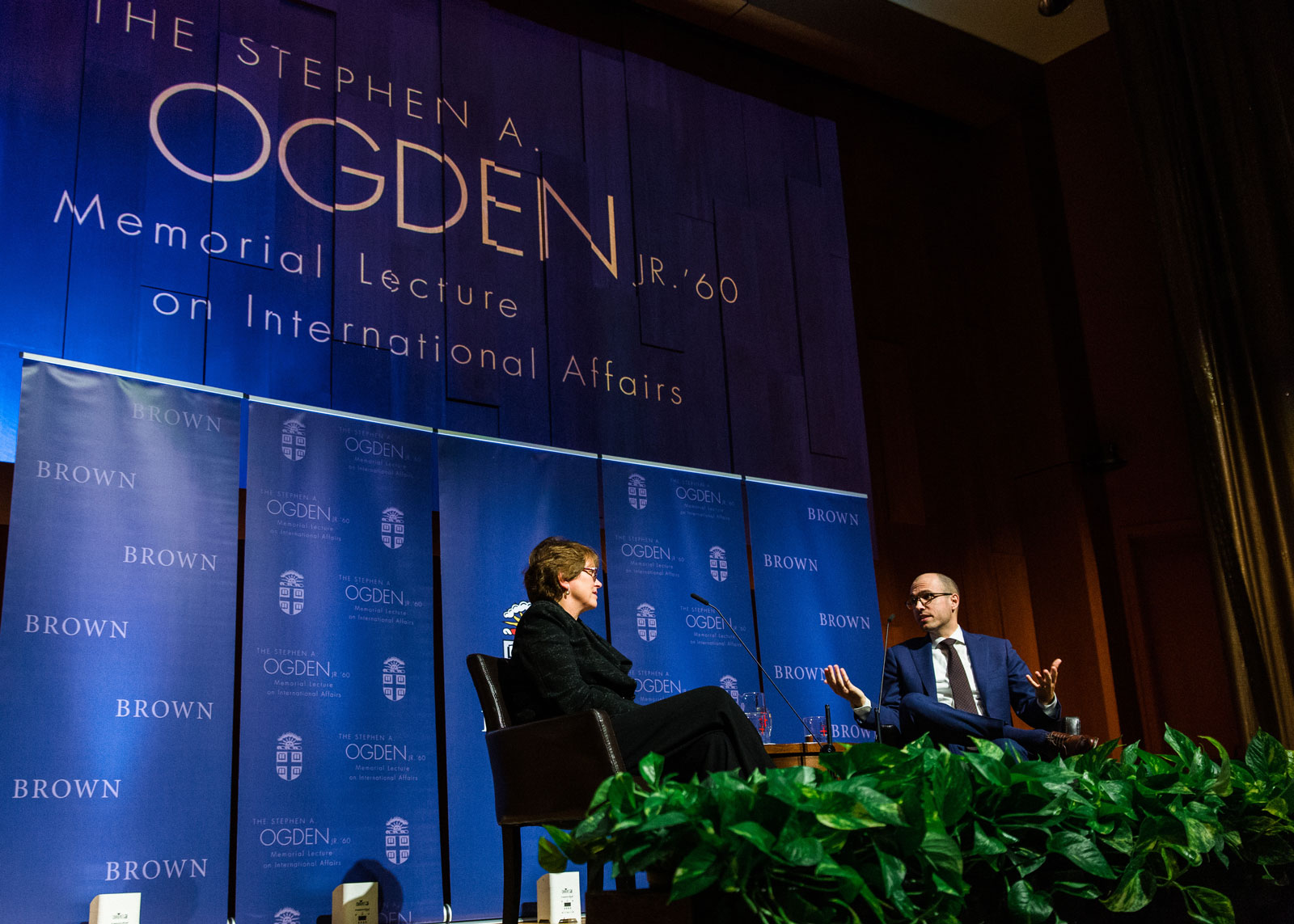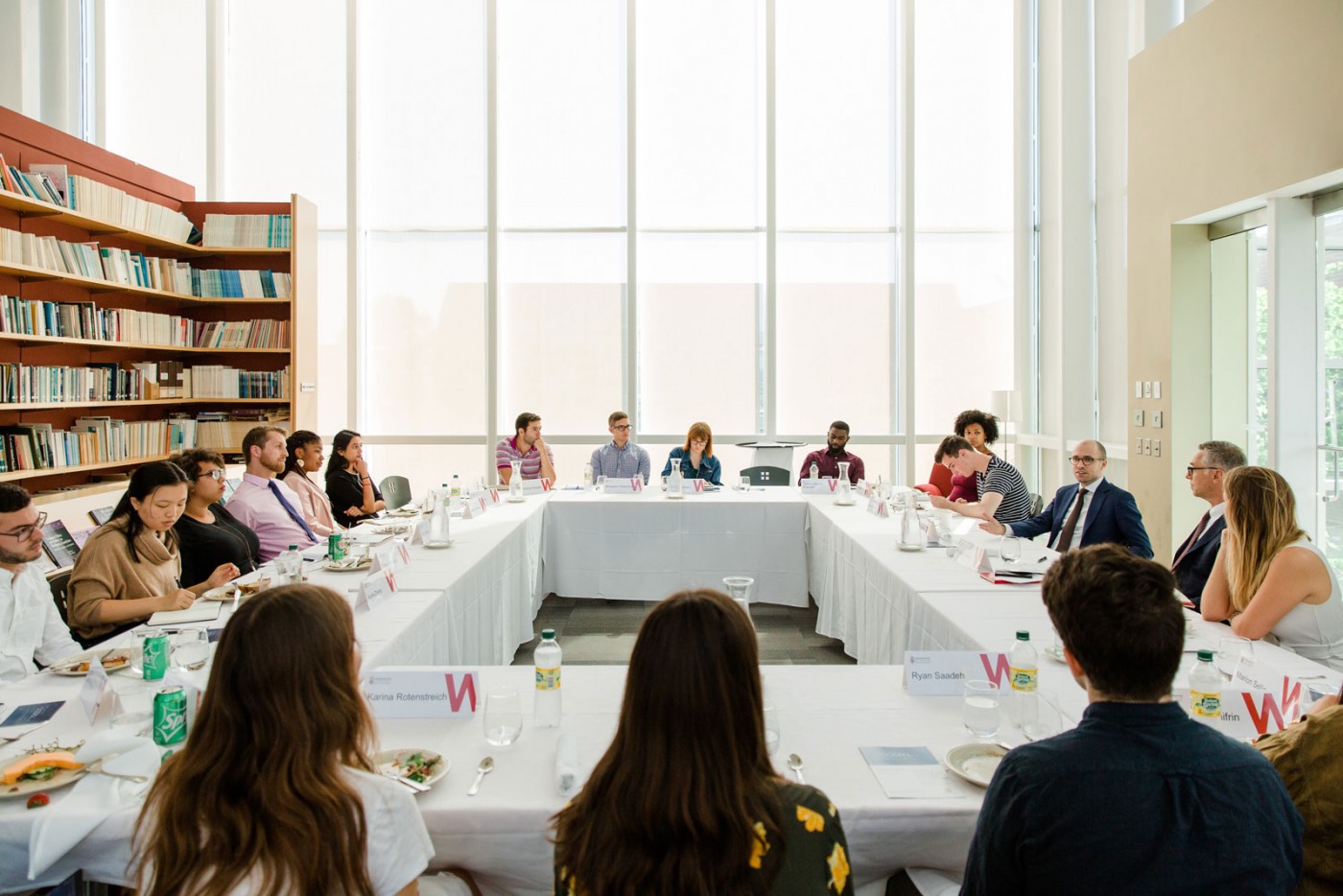PROVIDENCE, R.I. [Brown University] — Two years ago, the New York Times received a call from a U.S. government official with a warning to newsroom leaders that Declan Walsh, a Times reporter based in Egypt, would be arrested by Egyptian forces imminently.
It was one of countless similar calls the newspaper has received over the years — warnings it has come to expect, given that much of its reporting exposes corruption, greed and other inconvenient truths in countries with authoritarian leaders.
But this one was different: It was the first that didn’t include any reassurance that the federal government would do what it could to intervene and stop the arrest.
“We learned that the official was passing along this warning without the knowledge or permission of the Trump administration,” said A.G. Sulzberger, publisher of the Times. “Rather than trying to stop the Egyptian government or assist a reporter, the official believed that the Trump administration intended to sit on the information and let the arrest be carried out.”
Sulzberger, who has been at the helm of the nation’s largest news organization since January 2018, had never shared that story publicly until Monday, Sept. 23, when he addressed a crowd of hundreds at Brown University’s Salomon Center for Teaching. The Class of 2003 Brown graduate visited College Hill for a presentation titled “Free Press in Peril,” part of the Stephen A. Ogden Jr. ‘60 Memorial Lecture series. Earlier in the day, Sulzberger had joined a small group of Brown students for a round-table discussion.
Though Walsh, the Times reporter, escaped arrest safely thanks to help from Irish officials, the episode marked a worrying sign of the times to Sulzberger and his colleagues. Throughout American history, Sulzberger said, leaders from Jefferson to Kennedy to Reagan have recognized the value of a free press, even those who wrestled with coverage that exposed their mistakes and called attention to their flaws. This was the Times’ first encounter with a presidential administration that openly criticized and devalued the role of journalism itself.
“The hard work of journalism has long carried risks, especially in countries that lack democratic safeguards,” Sulzberger said. “But what’s different today is that these brutal crackdowns are being passively accepted and perhaps even tacitly encouraged by the president of the United States.”

Sulzberger also addressed directly the reactions from President Donald J. Trump prompted by Times reporting.
“If recent history is any guide, he may actually point to my comments today and claim that the Times has a political vendetta against him,” Sulzberger said. “To be clear, I am not challenging the president’s recklessness because of his party, his ideology or his criticism of the Times. I am sounding the alarm because his words are dangerous and they are having real-world consequences.”
Sulzberger asserted that it was the collective responsibility of tenacious journalists, political leaders and the general public to preserve a free press in the face of mounting pressure from political leaders who had increasingly begun to threaten its very existence.
“Care about where your news comes from and how it is made,” he urged Brown students and local community members in the audience. “Carve out a place for journalism in your everyday life and use what you learn to make a difference. The true power of a free press is an informed, engaged citizenry.”

For his part, Sulzberger pledged increased transparency and accessibility from the Times, which he hoped would increase trust among readers. As publisher, Sulzberger said the newspaper’s leaders have worked to clearly label opinion pieces so that they’re not mistaken for objective news — and they’ve spent time questioning reporting traditions that may no longer make sense in today’s digital world, including the use of the “inverted pyramid” format reporters once used nearly universally to tell their stories.
One thing he’ll never abandon, he said — the relentless pursuit of truth. Even as reporters face increasing scrutiny from leaders across the world, and increasing danger from wars and natural disasters, this remains the essential mission of journalists.
“At a moment when surging nationalism is leading people to retreat inward, one of the most important jobs of the Times is to shine a light outward,” Sulzberger said. “The Times is privileged to be one of the few news organizations with the resources to cover the world in all its complexity. And with that privilege comes a responsibility to go where the story is, no matter the danger or the hardship.”
Despite the fact that he is descended from three generations of news leaders — his great-great-grandfather, Adolph Ochs, purchased the New York Times in 1896 — Sulzberger’s entry into journalism wasn’t always a sure bet, said University President Christina H. Paxson as she introduced the publisher on Monday night.
“Convincing him to give it a try took an honest pitch from a faculty member who taught him advanced feature writing at Brown — Pulitzer Prize-winning journalist and Visiting Professor of English Tracy Breton,” Paxson said. “I guess he was convinced.”
In his presentation, Sulzberger credited faculty at Brown for shaping his career trajectory and helping him land his first reporting job at the Providence Journal, where he reported on the town of Narragansett. He said that auspicious start led him to where he is now, at the helm of an organization that employs more than 1,600 reporters in 160 countries.
But just because Sulzberger landed the role of publisher doesn’t mean he’s become complacent. If anything, he said, he feels more dedicated than ever to defending his organization and its principles.
“News organizations must hold fast to the values of great journalism: independence, fairness and accuracy,” he said. “We cannot let ourselves be baited or applauded into becoming anyone’s opposition or cheerleader... Our loyalty must be to the facts, not to any party, and any leader...
We must continue to follow the truth wherever it leads.”